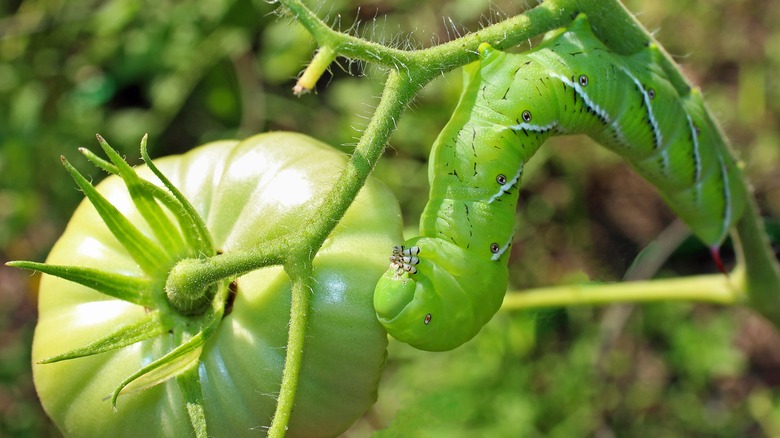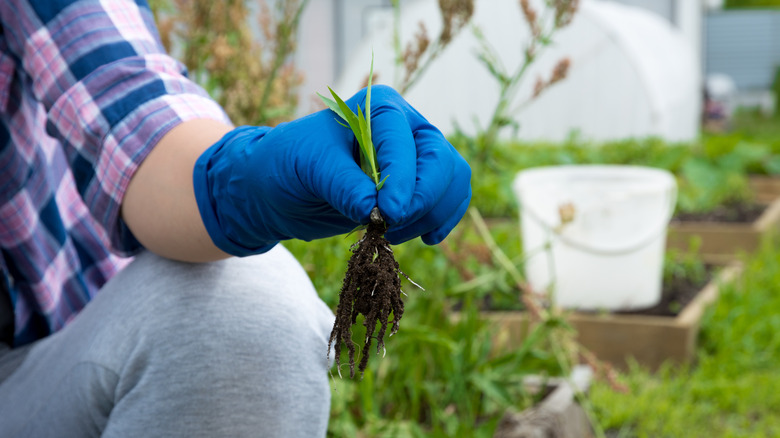Weeds may seem like the natural enemy of a plant enthusiast. But a true green thumb knows that some weeds are far better than others. Before pulling up everything but your garden plants, you’ll want to ensure you’re not ridding yourself of a natural pest repellant and culinary herb. Ground ivy, known by many names like Creeping Charlie and Gill-over-the-ground, is a crawling weed that repels common pests and attracts pollinators. Allowing ground ivy to grow on the outskirts of your garden can be a beneficial part of your yard care.
Common pests like cucumber worms, hornworms, and beetles can plague gardens and ravage plants and crops. Ground ivy grows like a dense mat and is a barrier many insects struggle to cross or burrow into. Ground ivy is a companion weed that is challenging to pests but enticing to pollinators like bees and butterflies. Additionally, maintaining and harvesting the ivy population can benefit you as it has medicinal and culinary properties.
Ground ivy repels pests but attracts pollinators

Ground ivy is considered a weed because of its rapid growth rate and resiliency. Yet, like dandelion, ground ivy, when monitored, is a beneficial garden plant. It naturally repels species several species of worms and beetles. The insects find it difficult to navigate its dense ground-covering foliage and, therefore, cannot burrow into the soil. So, if you’re averse to using pesticides, consider letting your ground ivy grow, but keep a watchful eye because it can get out of hand. Controlling your weed population is possible — and in the case of ground ivy — beneficial.
Though it prevents worms and beetles from accessing your garden, ground ivy invites pollinators. Because it produces nectar, bees and butterflies will want to land on it to feed. Then, these helpful insects will transfer pollen to other plants in the vicinity, which will in turn aid in the growth of your garden.
Harvest ground ivy for its culinary and medicinal properties

Part of the mint family, ground ivy is edible and has medicinal and culinary uses that may make you reconsider removing it. Traditionally, the weed, which is classified as an herb, has been used to relieve respiratory and digestive symptoms like bloating and gas. Studies have shown that ground ivy is high in anti-oxidants known for their immune-boosting properties, which is likely why it is also used to combat the common cold. Drinking a tea infused with ground ivy is one way to receive its benefits, but you can also cook with it.
Ground ivy has a slightly bitter, minty taste. You can replace mint or other herbs in your recipes with a similar flavor profile. The weed will uplift fruit salad or bring an extra note to a winter stew. When harvesting, properly clean the herb like any other you use. In addition, because it is a weed, it does not need the best soil conditions to thrive. Harvesting and consuming ground ivy for medicinal and culinary properties is a great way to control the weed population so the ivy can benefit your yard without overpowering it.